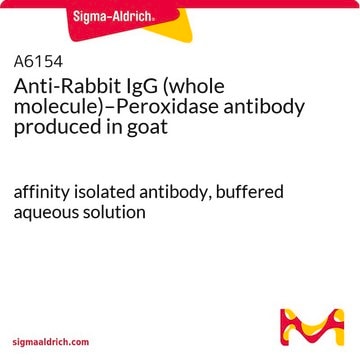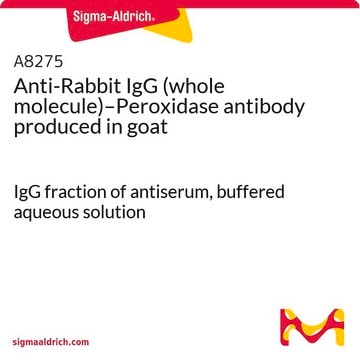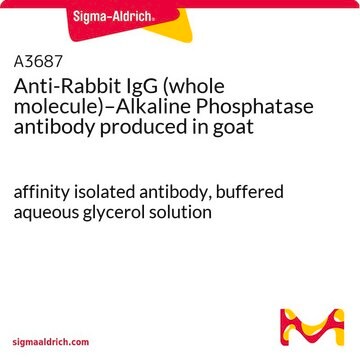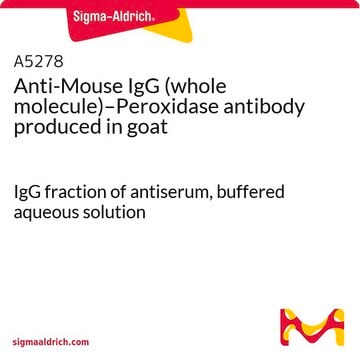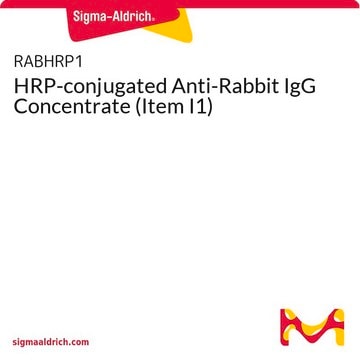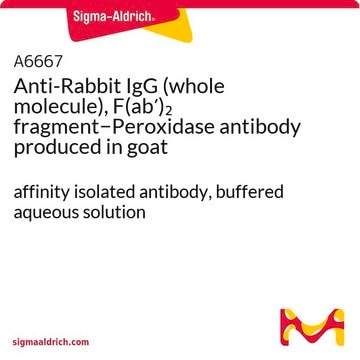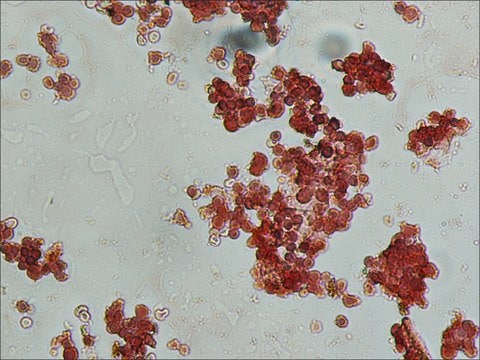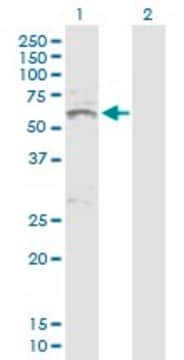A9169
Conjugué anticorps anti-IgG de lapin (molécule entière)-peroxydase antibody produced in goat
IgG fraction of antiserum, buffered aqueous solution
Synonyme(s) :
Anti Rabbit Antibody - Anti-Rabbit IgG (whole molecule)–Peroxidase antibody produced in goat, Anti Rabbit Antibody Sigma
About This Item
Produits recommandés
Source biologique
goat
Niveau de qualité
Conjugué
peroxidase conjugate
Forme d'anticorps
IgG fraction of antiserum
Type de produit anticorps
secondary antibodies
Clone
polyclonal
Forme
buffered aqueous solution
Espèces réactives
rabbit
Technique(s)
direct ELISA: 1:50,000 using using 5 μg/ml of rabbit IgG for coating and OPD substrate
immunohistochemistry (formalin-fixed, paraffin-embedded sections): 1:400
western blot (chemiluminescent): 1:80,000-1:160,000 using using β-actin in total cell extract of HeLa cells (5-10 μg per well)
Conditions d'expédition
dry ice
Température de stockage
−20°C
Modification post-traductionnelle de la cible
unmodified
Vous recherchez des produits similaires ? Visite Guide de comparaison des produits
Description générale
Rabbit IgGs against target proteins are often used as primary antibodies in various research applications. Thus, secondary anti-rabbit IgGs conjugated to a detectable substrate are useful tools for the analysis of target proteins.
Goat Anti-Rabbit IgG (whole molecule)-Peroxidase antibody binds all rabbit Igs.
Spécificité
Immunogène
Application
Goat Anti-Rabbit IgG (whole molecule)-Peroxidase antibody can be used for immunoblot assays at 1:1,000. The antibody can also be used for ELISA (1:5,000) and IHC (1:400) applications.
Actions biochimiques/physiologiques
Forme physique
Notes préparatoires
Stockage et stabilité
Clause de non-responsabilité
Vous ne trouvez pas le bon produit ?
Essayez notre Outil de sélection de produits.
Mention d'avertissement
Danger
Mentions de danger
Conseils de prudence
Classification des risques
Resp. Sens. 1 - Skin Sens. 1
Code de la classe de stockage
12 - Non Combustible Liquids
Classe de danger pour l'eau (WGK)
WGK 2
Point d'éclair (°F)
Not applicable
Point d'éclair (°C)
Not applicable
Certificats d'analyse (COA)
Recherchez un Certificats d'analyse (COA) en saisissant le numéro de lot du produit. Les numéros de lot figurent sur l'étiquette du produit après les mots "Lot" ou "Batch".
Déjà en possession de ce produit ?
Retrouvez la documentation relative aux produits que vous avez récemment achetés dans la Bibliothèque de documents.
Les clients ont également consulté
Notre équipe de scientifiques dispose d'une expérience dans tous les secteurs de la recherche, notamment en sciences de la vie, science des matériaux, synthèse chimique, chromatographie, analyse et dans de nombreux autres domaines..
Contacter notre Service technique
